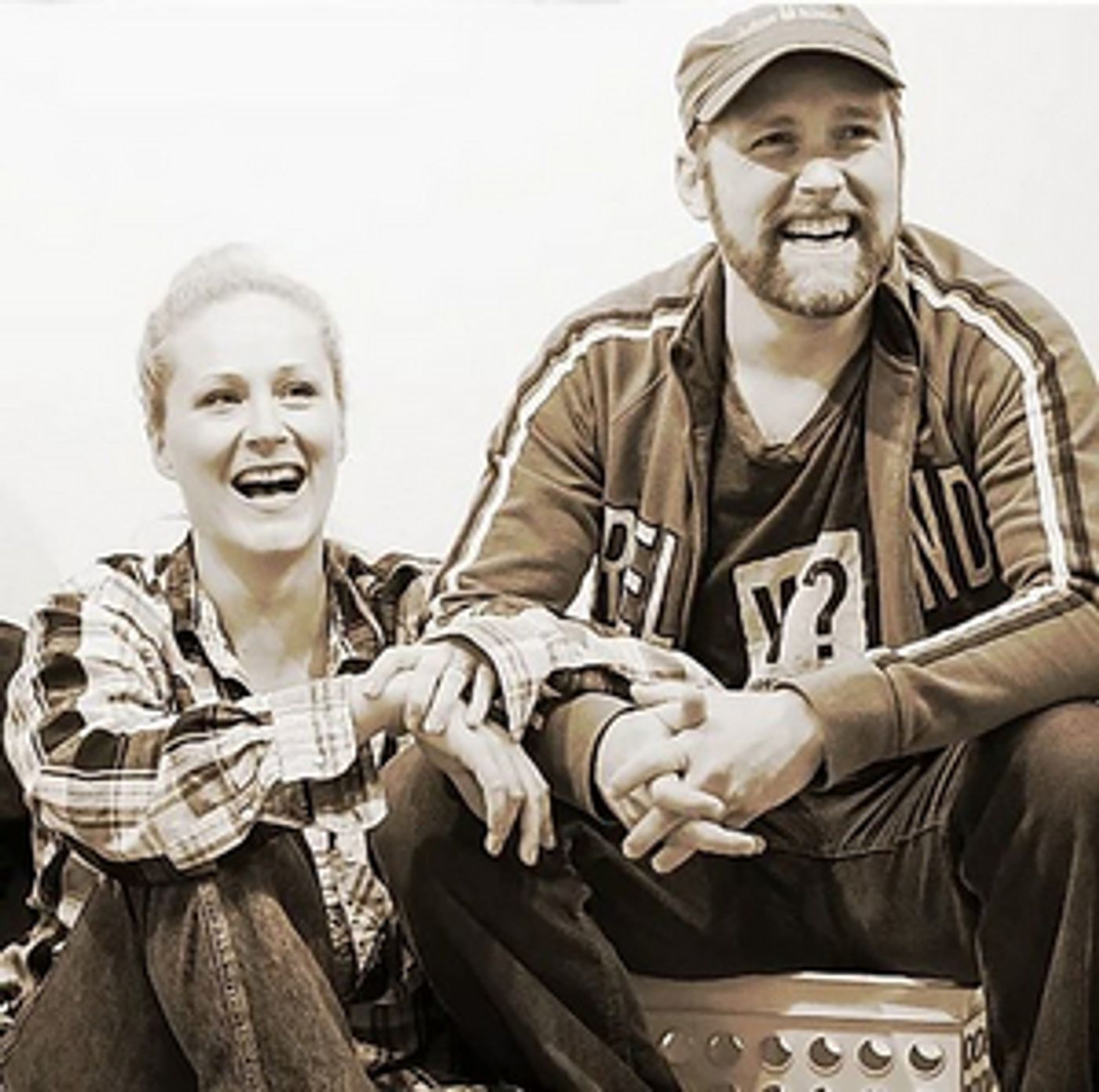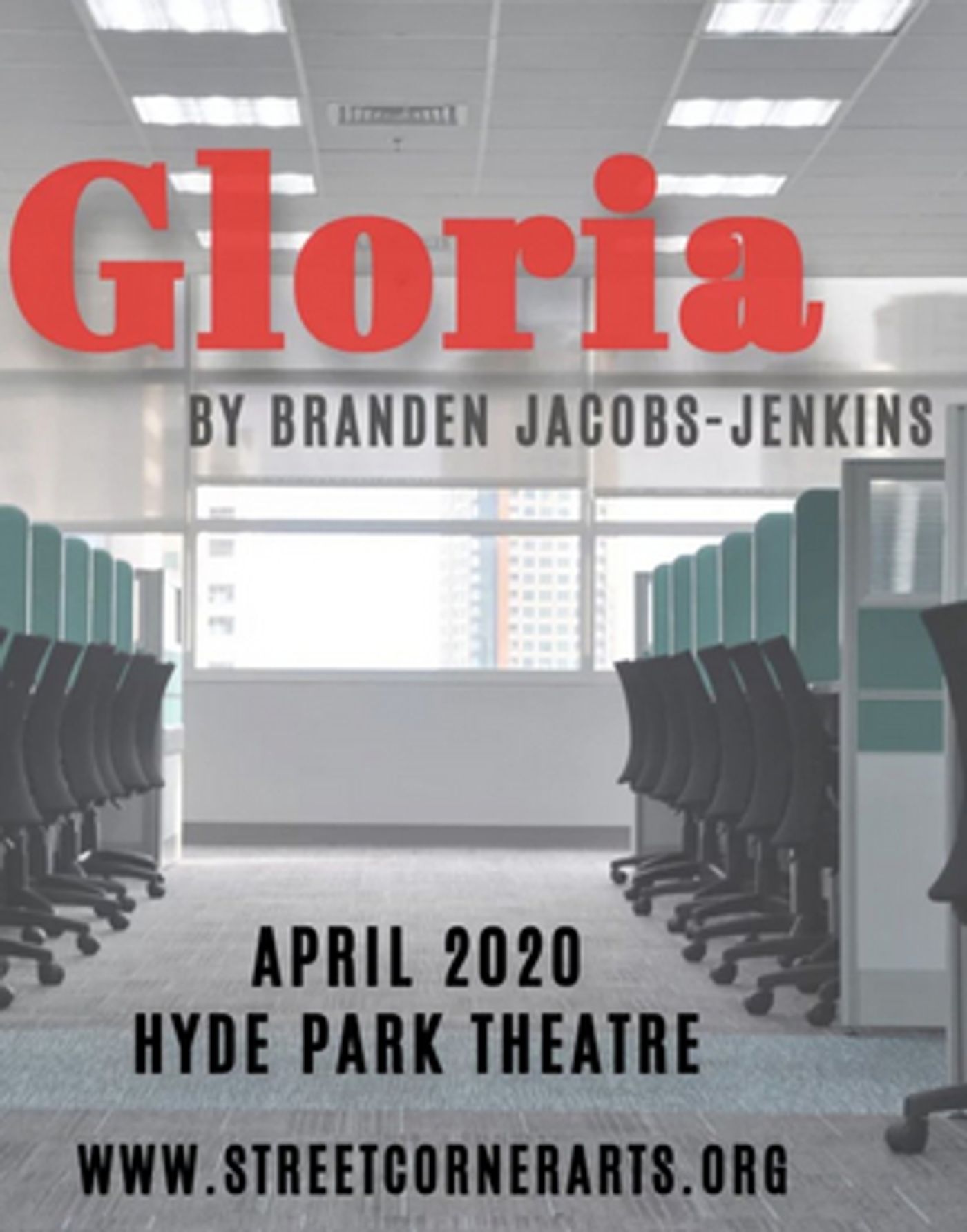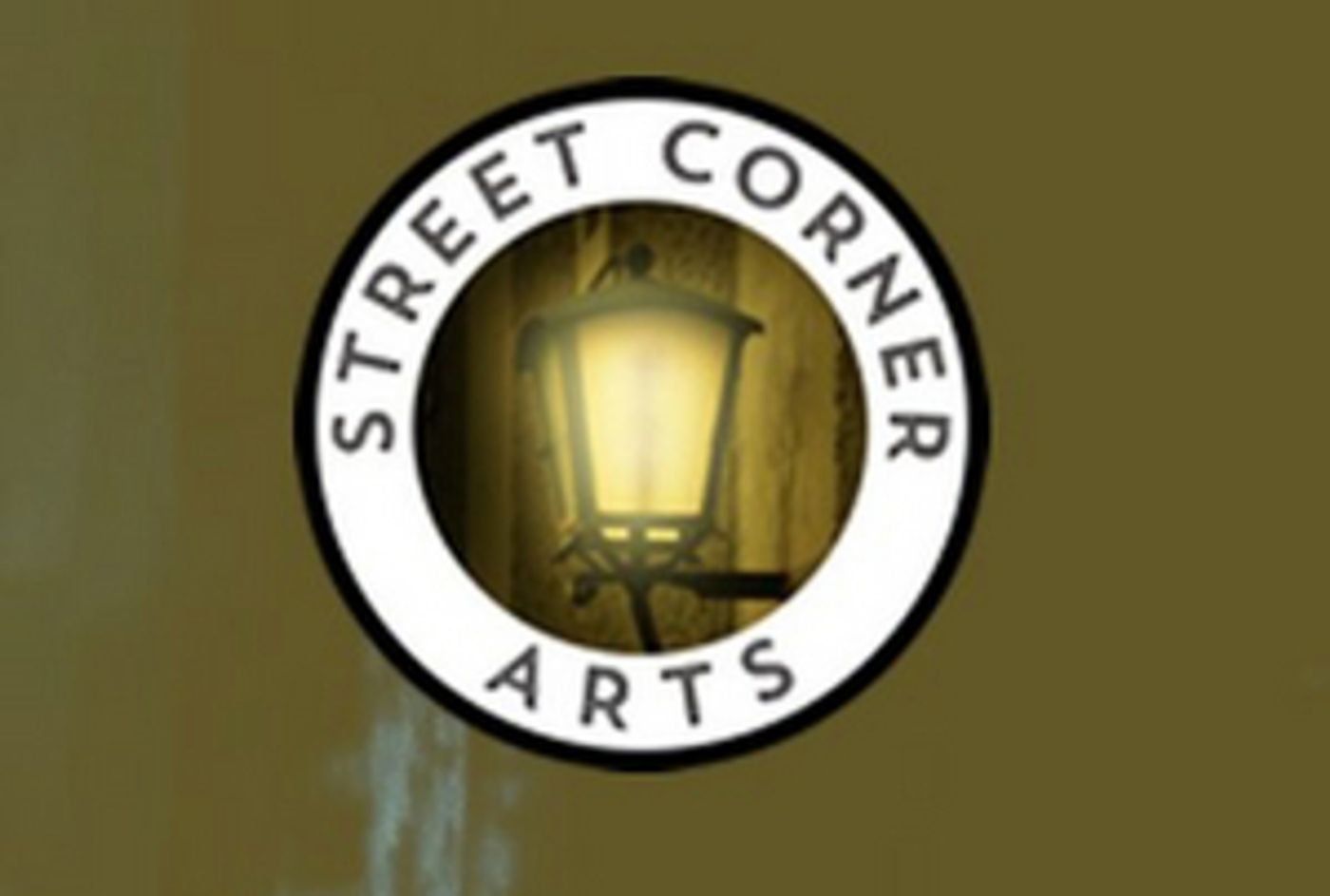Interview: Resilience in the Present and Hope in the Future: A Chat with Benjamin and Andrea Summers of Street Corner Arts

In the last few weeks we've gotten to see what happens when the world stops and waits with one bated breath. Though the future feels bleak and uncertain, there's an opportunity to connect as we never have before, exercise our problem solving muscles, and create a new normal for the foreseeable future.
Each community in Austin is reeling from the impact of the coronavirus, especially the arts community. Founded in 2011, Street Corner Arts produces some of the highest quality theater in Austin. They delight in "provocative storytelling that spawns a dialogue from page to stage" with a focus on "scripts with a clear vision and crisp, intelligent dialogue."
I recently chatted with husband and wife Benjamin and Andrea Summers of Street Corner Arts to discuss how they and the arts community at large are navigating the unique challenges brought on by city-wide closures and cancellations. Benjamin is the Producing Director and Andrea is the Artistic Director.
Madelyn Geyer (MG): This is such a crazy time right now. How are you guys doing? What does a normal day look like for you right now with Street Corner Arts not being active?
Andrea Summers (AS): We've got a three year old and a one year old, and then both of us are teachers as well. So it's a very interesting time in our household.
Benjamin Summers (BS): Yeah, it is. It's wild. We have two young kids so the majority of our focus has been there, but we're still figuring out what a normal day looks like for us. The schools are just now getting to a point where they are getting a plan of action together because they're realizing that this is going to be a long haul.
AS: As for Street Corner, we still have ongoing correspondence via e-mail or text message reminding ourselves about scheduled readings or special projects on the side. We have to figure out what we're doing in December and really consider what that timeframe looks like. We still have to ask those questions but the discussion has taken a different format. A lot of what we're thinking about right now, not even within the context of Street Corner, is the artist. All the amazing people we've worked with who are like family, who are worried about making ends meet right now.
MG: Street Corner had to cancel the upcoming show GLORIA, which was set to run from April 3rd to 18th. What was that conversation like with everyone?
AS: Everything happened so fast. We had been talking a couple of nights beforehand-when we still didn't know the gravity of the situation-about mind and heart space that might be necessary to deal with this flood of information. So it all just happened really fast.
BS: Yeah, that was definitely one of the strangest situations to find ourselves in. There's this eerie, ominous feeling. And it kind of evolved over the course of the night. The conversation started in a place of "What if we have to do this?" We then all ended up talking for a while and it was clear to everybody in the room that we had made the decision without actually making a decision. Everybody had gotten to the same place, but you could see it dawning on everybody at different points. And by the end of the night, we were just bummed and sad. We love our theater and we love what we do. But it's not worth risking anybody's health, whether it's somebody in the cast and crew or an audience member. So I don't think anybody was shocked when we made the final call a couple days later.
MG: What's the major impact of cancelling GLORIA? What does the present and future look like for Street Corner Arts?
BS: Artistically, we're trying to kind of reshuffle the deck. We're not giving up on GLORIA. We definitely want to produce that show but we're trying to ask ourselves if we want to move it to December or if we want to wait and do it in a year. We're still holding to our values and what we want to do, but we're going to have to shift the timeline a little bit.
AS: Financially, we started feeling that we had to cancel but I think we were panicking a little bit on what the ripple effect of canceling would be. Not just for our company, but again, for the artists. Ken Webster at Hyde Park Theatre is one of our closest friends. So what would the potential financial impact be on Hyde Park and Ken? We had a lot of questions bubble up before we made this choice to postpone the show. And we wanted to make sure we had a plan in place to cover what we could. Financially, we're still going to honor our contract with the Hyde Park Theatre.
BS: Mainly because we cherish that venue. And there are so few performance venues in town and we respect Ken so much that we felt like that was the right thing to do. And then the other big thing is trying to take care of our cast, designers, and crew. That's why we have this ghost performance that we're publicizing.
AS: Our audience members have always been so generous when it comes to donations. So our hope was that we could just rally everybody one time to try and get the stipend money for our artists.
MG: What is a ghost performance?
 BS: It's actually an idea that Andrea had years ago for us as just a general fundraiser. Essentially, you sell tickets to a show that you then don't do. You ask people to buy the ticket price so it's not something where they feel obligated to spend one hundred dollars, but they know they supported the show. So we decided to take that concept and apply it to GLORIA. We're already up to about twelve hundred dollars and we're aiming for at least two thousand. If we could get two thousand, then that would allow us to partially fund the contracts that we initially had with the artists.
BS: It's actually an idea that Andrea had years ago for us as just a general fundraiser. Essentially, you sell tickets to a show that you then don't do. You ask people to buy the ticket price so it's not something where they feel obligated to spend one hundred dollars, but they know they supported the show. So we decided to take that concept and apply it to GLORIA. We're already up to about twelve hundred dollars and we're aiming for at least two thousand. If we could get two thousand, then that would allow us to partially fund the contracts that we initially had with the artists.
AS: It's honestly hard to even think about public funding right now. It's a strange time to be asking for money. So I think our plan is, as we get closer to what would have been the opening day, to ramp up marketing and celebrate each increment we make whether it's selling a portion of the house, or selling out.
MG: How have all the cancellations impacted the arts community at large and how are you guys banding together?
BS: I can't speak for everybody else, but for us, it's still sinking in. I'm still in shock, but I love seeing these projects that some of the other companies are doing. Hyde Park's streaming their show HOUSE online. Austin Playhouse has been posting little snippets and Penfold Theatre has been doing some cool stuff as well. I know The Vortex is also starting to ramp things up.
AS: At this time we're not in a place where we feel like we can provide content but we can definitely support our community, so we're doing that to the best of our ability.
MG: What is your biggest hope and biggest fear for Street Corner Arts and the Austin arts community in general once this has all ended?
BS: My hope and fear in the broader context are related. My fear is that people are going to be so focused on the most basic needs that the arts become much less important in their mind. At the same time, my hope-and what I'm already starting to see-is people are recognizing the value of the arts. People can only watch Netflix for so long. My hope is that when the dust settles and we're suddenly given the opportunity to go and seek these things out, that maybe some people who haven't gone to see live theater or haven't gone on a regular basis now have a greater appreciation for it. And so they start discovering Street Corner and the arts community in general because there's so much great art being done in this town and so much great theater.
Sometimes we get so caught up in in the individual art that I think it's easy for the arts community to feel a little bit fractured. But I'm hoping that once people start getting out and going to see live theater again, we can all work together to kind of find that common voice as a city.
MG: How did you guys choose Gloria?
BS: Jeremy Lee Cudd, who's a professor at University of Texas, was a consultant for us when we were rehearsing our show JUNK in 2019. Over the summer, he and I started having conversations about him directing a show with us, so he brought us about ten scripts and we narrowed it down from there. We actually almost pivoted away from Gloria because there's just a lot to it. But he encouraged us and we came back to it. So this was all his brainchild and we're just supporting his vision. For us it made the decision that much harder because it really was his baby. And we felt terrible having to make the call that we did. But he's still committed to it as well as all the actors, so it's not a cancellation. We just hit the pause button and we're waiting for the right time to revisit.
MG: How are you making this time creatively fruitful at Street Corner Arts?
 BS: The summer is generally our planning and creative time. When we know one of us is going to direct a show, that's when we start reading scripts. The months of June and July are filled with reading, researching, tracking down scripts and new playwrights. And then from there, once we have a short list of our scripts, we do private readings of them because we always want to hear them out loud before we move forward. So I think our vision-which hasn't happened yet because everything is so new and we're still in emergency mode-is that we would move that process up a little bit. We're all home right now. We've got time! I've got about ten scripts that are on my bookshelf that I'm looking forward to digging into. We're also communicating with other guest artists that we're hoping to work with in the coming year. We do have a show that we're excited about possibly producing in December. We already had set up a formal reading for that show, which we then had to postpone, so we're looking forward to hearing that aloud.
BS: The summer is generally our planning and creative time. When we know one of us is going to direct a show, that's when we start reading scripts. The months of June and July are filled with reading, researching, tracking down scripts and new playwrights. And then from there, once we have a short list of our scripts, we do private readings of them because we always want to hear them out loud before we move forward. So I think our vision-which hasn't happened yet because everything is so new and we're still in emergency mode-is that we would move that process up a little bit. We're all home right now. We've got time! I've got about ten scripts that are on my bookshelf that I'm looking forward to digging into. We're also communicating with other guest artists that we're hoping to work with in the coming year. We do have a show that we're excited about possibly producing in December. We already had set up a formal reading for that show, which we then had to postpone, so we're looking forward to hearing that aloud.
MG: One of the unexpected upsides to quarantine is everyone now has all this time to develop new skills or emerge with new plays or pieces of art they've created.
BS: I think we're all going to learn new things. There's going to be some great stuff that's written because people have time to just sit and write. I wish I was a writer! I wish I could do that. But we're also going to end up with people realizing just how valuable technology can be in the artistic process. So everybody's going to get a little bit more savvy with that and all of those things you've always put on the back burner because you were so in the moment of creating art. We feel like we always have to create, create, create. Now all of a sudden we have this hibernation period to recharge our batteries and revisit some of the values that we really appreciate about our art form.
MG: I think this moment in history is going to influence some great pieces of art.
BS: Yes, it'll be really interesting to see tone of some of the work that comes out of all of this. Is it going to be especially dark, or is it going to be especially optimistic? I don't know.
MG: What would you say to like other theater companies and artists feeling stuck or unsure right now?
BS: The thing I would tell the other artisans is give to us a call. How can we help? If we have some resources that we can send their way, we'd be more than happy to. If it's helping to publicize their projects in this time, let us know. And more than anything, Street Corner Arts has always been really focused on the family environment. We have a really tight knit group of actors that we work with over and over again. And so for them, we just want to make sure they're taking care of themselves and taking care of their families. That's really what we're focused on right now.
https://www.streetcornerarts.org/
Donate to the Ghost Performance here

Videos

